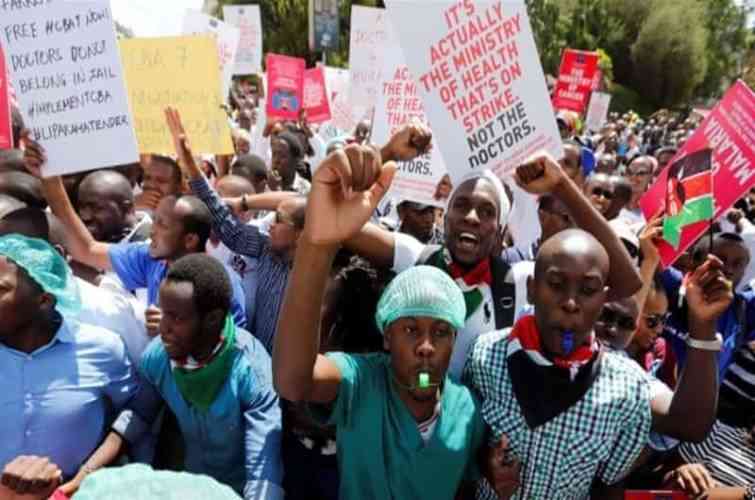Health workers treating women with pregnancy-related problems in Ebola-hit countries have to make life or death decisions for their patients and themselves, experts said on Wednesday.
Health workers have very little time to decide whether a pregnant women with complications is free of Ebola and should have the necessary intervention, or may have Ebola and should have minimal procedures, experts said in BJOG: An International Journal of Obstetrics and Gynaecology.
Dr Benjamin Black, a specialist in obstetrics and gynaecology, said poor infrastructure and limited access to laboratory services meant that test results for suspected Ebola patients could take more than 24 hours to arrive, in which time a woman and her foetus may die.
Health workers dealing with childbirth are at particular risk of infection because they are frequently exposed to large quantities of bodily fluids, including blood, urine and faeces.
Medecins Sans Frontières (MSF), which opened in Sierra Leone on Saturday the first care centre for pregnant women in the current Ebola epidemic, said the survival rate from the virus for expectant mothers was virtually zero. (id:USKBN0KJ0PH)
"The overlap in diagnostic criteria, but with contradictory treatment strategies, creates an ethical conundrum for the obstetrician in an Ebola epidemic," Black wrote in a commentary.
"The decision on whether to isolate a woman or not is potentially a decision between life and death, for both the patient and the health worker."
Due to the stigma, rumours and fear surrounding Ebola, pregnant women often wait until they are in a critical state before seeking treatment, further challenging the system of prioritising patients, Black said.
While the rate of transmission has slowed in Guinea and Liberia and signs indicate it is starting to ebb in Sierra Leone, the journal said that once-functioning health structures were now deserted by patients and staff, as many have died from Ebola while others fear working and have gone on strike.
In a separate commentary published in the journal, three Public Health England (PHE) authors said data on pregnancy outcomes in the current epidemic was relatively scarce.
Limited evidence suggested that maternal mortality rates are high among Ebola virus-infected pregnant women, who are at increased risk of spontaneous abortion, pregnancy-related haemorrhage, stillbirth and death, they said.
"While high neonatal mortality rates have been previously reported, it hasn't always been known whether these deaths were caused by Ebola or the many other causes of high infant mortality," the PHE commentary said.
More than 21,000 people have been infected with the virus in Guinea, Sierra Leone and Liberia since the current outbreak in West Africa began a year ago and at least 8,300 people have died, according to World Health Organization figures.
 The Standard Group Plc is a
multi-media organization with investments in media platforms spanning newspaper
print operations, television, radio broadcasting, digital and online services. The
Standard Group is recognized as a leading multi-media house in Kenya with a key
influence in matters of national and international interest.
The Standard Group Plc is a
multi-media organization with investments in media platforms spanning newspaper
print operations, television, radio broadcasting, digital and online services. The
Standard Group is recognized as a leading multi-media house in Kenya with a key
influence in matters of national and international interest.
 The Standard Group Plc is a
multi-media organization with investments in media platforms spanning newspaper
print operations, television, radio broadcasting, digital and online services. The
Standard Group is recognized as a leading multi-media house in Kenya with a key
influence in matters of national and international interest.
The Standard Group Plc is a
multi-media organization with investments in media platforms spanning newspaper
print operations, television, radio broadcasting, digital and online services. The
Standard Group is recognized as a leading multi-media house in Kenya with a key
influence in matters of national and international interest.










